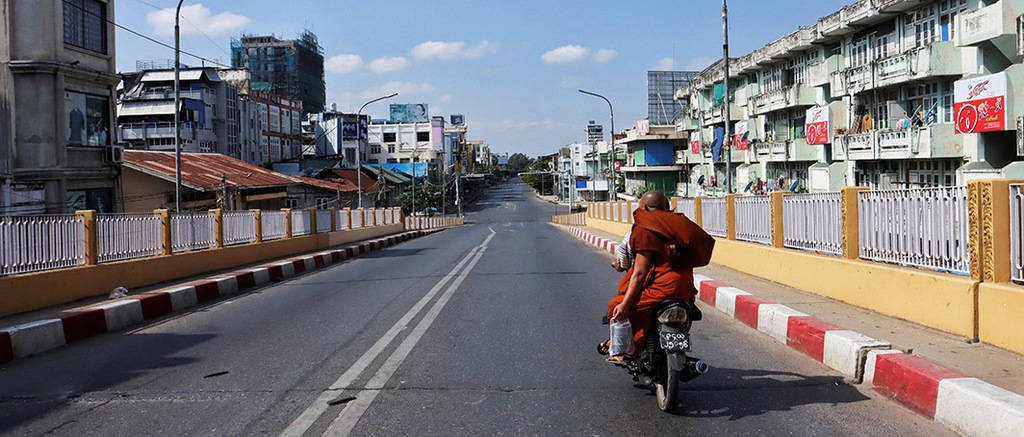One Year Since the Coup: A Reexamination of Myanmar’s Global Migration
By Lauren Mai
February 1, 2022 marked the one-year anniversary of the Tatmadaw’s coup on Myanmar’s democracy. The military warned its residents that if they were to publicly protest, they would face arrest for sedition and terrorism. Burmese residents stayed indoors and closed their businesses for a “silent strike” across the country, a stark contrast to the millions of people who protested on the streets of Myanmar last year.
Political Developments
On February 14, a court will place former leader Aung San Suu Kyi under trial for election fraud, accusing her of influencing the 2020 votes to secure a second term in office. Win Myint, former President, faces the same charges, as does ally Min Thu. If found guilty, the three will be sentenced to up to three years in prison as well as subject to a fine. Suu Kyi is currently facing trial for over a dozen cases and has been sentenced to a total of six years in prison. If found guilty in all of her trials, Suu Kyi will be subject to a slew of maximum prison terms adding up to over 100 years in prison.
New Effects on Migration
The coup, combined with the economic turmoil brought by COVID-19, has displaced hundreds of thousands of Burmese people. Many refugees chose to flee to Thailand, one of Myanmar’s top migrant destinations pre-pandemic. Despite the influx in refugees, Thailand has kept their borders closed. According to Thai officials, just months after the coup, the number of illegal immigrant arrests tripled, peaking in November at 6,000 intercepted migrants.
Myanmar’s other neighbouring states, including India and China, have also officially kept their borders closed. Regardless, thousands of refugees have successfully crossed their borders, with up to 15,000 Burmese refugees entering India as of September 2021. However, most refugees were forced to return to Myanmar amidst the host countries pressuring them to leave, with India and Malaysia notably threatening to return Myanmar nationals who had fled pre-coup.
Beginning on May 25, 2021, the US extended Myanmar’s Temporary Protected Status (TPS) to November 25, 2022. The TPS allows immigrants who cannot return to their countries safely, whether that be because of natural disasters or armed conflict, to legally stay and work in the US until the expiration date, which is open to renewal if need be.
International Attention: Acknowledgement by the Biden Administration
The coup’s anniversary has caught the attention of the Biden Administration, who released a statement reacknowledging the coup on January 31st of this year. Amongst acknowledging the “countless brutal actions” and “unspeakable violence against civilians,” US President Biden openly condemned the coup. Biden also emphasised that the administration is working closely with their partners and allies, including ASEAN, to hold those responsible for the coup accountable. He notably included his desire to reverse the military’s actions and release all who have been unjustly detained, including Aung San Suu Kyi and Win Myint, amongst other democratically elected leaders, journalists, activists, civil society leaders, and foreign citizens.

